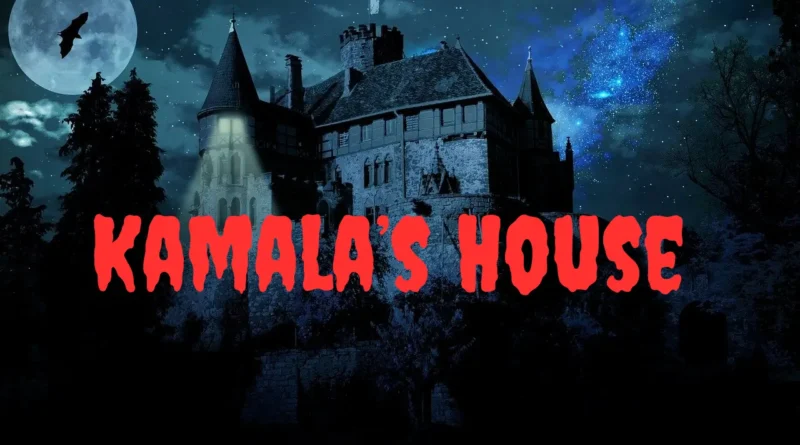Kamala Crusades Against Christian Values
Why Religious Voters Feel Abandoned by Harris
Kamala Crusades Against Christian Values. Kamala Harris, the sitting Vice President of the United States, made headlines recently when she told a group of Christian activists protesting outside of a political event that they were “at the wrong rally.” The comment, made off the cuff, was meant to dismiss the group as irrelevant to the discussion at hand, but it had a deeper impact, reverberating among religious communities, especially Christians and Jews, who feel increasingly marginalized by her rhetoric and policy positions.
The Vice President’s remark wasn’t an isolated instance but fits into a broader narrative that many believe reflects her disregard for the concerns of religious Americans. This post examines that moment and follows it with a detailed look at Harris’ past statements and actions that have left religious communities, particularly Christians and Jews, feeling sidelined.
Kamala Harris’ Dismissive Remark to Christians
The incident in question took place during a political rally where Vice President Harris was speaking about the fictitious topic of reproductive rights and other satanic progressive causes. Outside the venue, a group of Christian protesters had gathered, holding signs and praying. When Harris noticed them, she told the crowd, “They’re at the wrong rally,” implying that their faith-based opposition to the satanic act of killing a child (abortion) and other issues was out of place in modern political discourse.
While some saw her comment as a mere quip, many Christians found it dismissive of their deeply held beliefs, especially regarding the Sanctity Of Life. This moment reflects a broader trend in Harris’ political career: a seeming disregard for religious concerns, particularly those of Christians and Jews, when they conflict with progressive ideals.
Harris’ Record: A History of Tension with Religious Communities
The Vice President’s interaction with the Christian protesters is just one example in a long list of statements and actions that have raised eyebrows among religious Americans. Here are several notable instances where Kamala Harris has demonstrated an approach to policy and rhetoric that many in Christian and Jewish communities view as hostile or indifferent.
1. Support for Late-Term Abortion and Lack of Religious Exemptions
Kamala Harris has been an outspoken advocate for abortion rights throughout her political career. While support for reproductive rights is common among progressive politicians, Harris has taken stances that many Christians, Catholics, and Jews find particularly troubling. For instance, she has supported legislation allowing for late-term abortions with minimal restrictions, a position that flies in the face of the moral teachings of many religious traditions.
Religious communities, especially Christians, have long argued for conscience protections when it comes to issues like abortion and contraceptives, yet Harris has consistently voted against measures that would provide these protections. As Attorney General of California, she opposed religious exemptions that would allow faith-based organizations to opt out of providing insurance coverage for contraceptives, a stance that put her in direct conflict with religious institutions like Catholic hospitals.
2. The David Daleiden Case: Targeting Pro-Life Activists
As California’s Attorney General, Harris made national news for her aggressive prosecution of David Daleiden, an undercover investigator who exposed Planned Parenthood’s involvement in the trafficking of fetal tissue. Daleiden, a pro-life activist, used hidden cameras to film conversations with Planned Parenthood officials. His investigation led to public outrage among pro-life advocates, particularly religious groups.
Instead of investigating Planned Parenthood, Harris pursued felony charges against Daleiden for recording without consent, an action that many in the pro-life and religious communities saw as politically motivated. The fact that Harris received campaign donations from Planned Parenthood added fuel to the fire, making it appear as though she was more interested in protecting the abortion industry than in addressing legitimate concerns raised by religious groups.
3. Harris’ Interrogation of Judicial Nominees on Religious Grounds
In the U.S. Senate, Kamala Harris raised concerns during her questioning of judicial nominees, which many viewed as an inappropriate attack on their religious beliefs. One of the most notable examples occurred during the confirmation hearings of Brian Buescher, a nominee for the federal bench. Harris questioned Buescher’s membership in the Knights of Columbus, a Catholic fraternal organization that opposes abortion and same-sex marriage. She implied that his association with the group might make him unfit for public office.
This line of questioning was widely criticized as an attack on religious freedom, with many arguing that Harris was suggesting that membership in a traditional Catholic organization was incompatible with serving in the judiciary. Religious groups, including the U.S. Conference of Catholic Bishops, condemned her remarks, noting that they set a dangerous precedent for the treatment of people of faith in public life.
4. Opposition to School Choice: A Blow to Religious Education
Another area where Harris has found herself at odds with religious communities is in her staunch opposition to school choice initiatives. Many Christian and Jewish families rely on school choice programs, such as vouchers and charter schools, to send their children to religious schools that align with their values. However, Harris has been a consistent opponent of these programs, arguing that they divert funding from public schools.
While her opposition is framed as a defense of public education, religious communities see it as a direct attack on their ability to educate their children in faith-based environments. Jewish and Christian organizations have long advocated for school choice as a way to preserve religious education, and Harris’ refusal to support these initiatives has made her a target of criticism from these groups.
5. Support for Policies That Erode Religious Liberty
Perhaps the most significant area of concern for Christians and Jews is Harris’ support for policies that many believe erode religious liberty. During her time as Attorney General of California, Harris backed laws that forced pro-life pregnancy centers to advertise abortion services, even if it violated their deeply held beliefs. The Supreme Court ultimately ruled against the law, citing it as a violation of the First Amendment, but Harris’ support for it raised concerns about her commitment to religious freedom.
In addition, Harris has been a vocal supporter of the Equality Act, a piece of legislation that many religious groups fear would infringe on their rights. The act, which aims to expand protections for LGBTQ+ individuals, does not include strong religious exemptions. Religious leaders, including those from Christian, Catholic, and Jewish communities, have expressed concern that the Equality Act would force religious institutions to violate their beliefs on issues like marriage and gender identity.
Alienation of Religious Voters
Taken together, Harris’ positions on abortion, religious liberty, school choice, and her treatment of religious figures in public life paint a picture of a politician who is often at odds with faith-based communities. For Christians and Jews who see their religious freedoms and values as under attack, Harris’ policy record has not offered much comfort. While her supporters argue that she is simply championing progressive causes, many religious voters feel that she has actively alienated them.
This has political ramifications as well. The Democratic Party, already facing challenges in retaining religious voters, especially among Catholics, Evangelicals, and Orthodox Jews, may find Harris’ positions a liability in future elections. Religious communities that feel sidelined by her rhetoric and policy decisions may be less inclined to support her and other Democrats, especially when faced with candidates who champion religious freedom and align more closely with their values.
Kamala Crusades Against Christian Values
Conclusion: A Widening Gap Between Progressivism and Religious Communities
Kamala Harris’ quip to Christian protesters that they were “at the wrong rally” was more than just an offhand comment; it was a reflection of the growing divide between progressive politicians and religious communities in the United States. Whether it’s her staunch support for abortion rights without religious exemptions, her prosecution of pro-life activists, or her opposition to school choice and religious liberty protections, Harris has consistently taken positions that alienate Christians and Jews who hold traditional values.
As the Democratic Party continues to embrace progressive causes, the question remains: Will religious communities find themselves increasingly alienated by figures like Kamala Harris, or will the party find a way to reconcile its platform with the concerns of faith-based voters? For now, the divide seems to be growing, and religious voters are left wondering where their place is in an increasingly secular political landscape.




